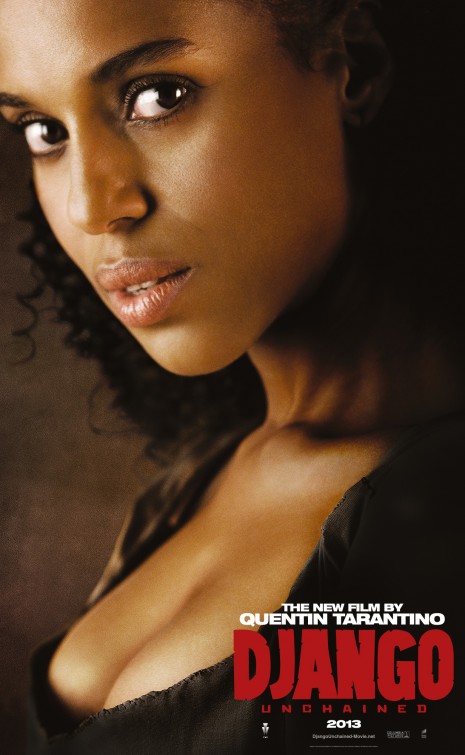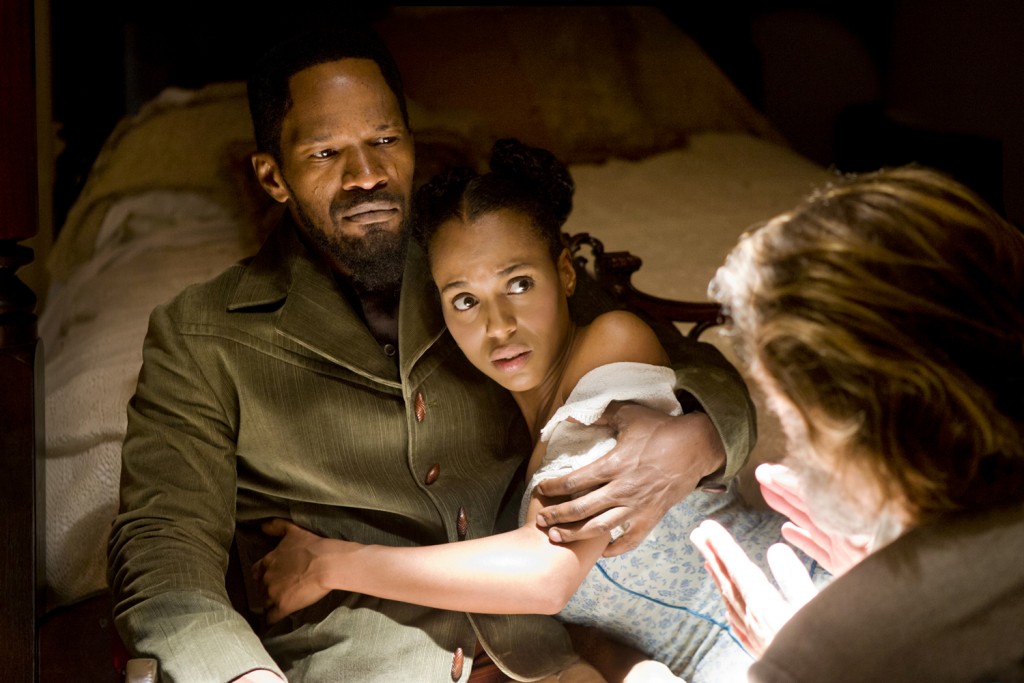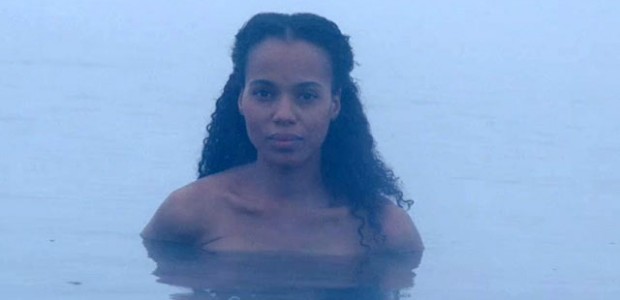

Today is Quentin Tarantino’s 52nd (!) birthday. We’re all big fans of his around here, so in his honor, we’re re-running this year-end review of his most recent film, 2012’s DJANGO UNCHAINED, which made pretty much all of our best-of lists at the time.

When, if, the controversy over DJANGO UNCHAINED’s use of the word “nigger” subsides, then we’ll be able to talk about how this is Quentin Tarantino’s best movie since PULP FICTION. It’s certainly my personal favorite of his since JACKIE BROWN. As refreshing as it has been to watch Quentin play with the vocabulary of cinema, splitting his films into chapters and shuffling the pieces around, it’s equally refreshing to see him, for the first time, hone a narrative into virtually consecutive order. This invites a focus on character and environment like never before. I’m not sure I have ever invested in the aims of a Tarantino lead as profoundly as I have in Django. I’m not sure I have ever loved a Tarantino woman as much as I do Broomhilda (it helps a lot that she’s played by the wonderful Kerry Washington). I wanted to see these two reunited as badly as I’ve ever wanted to see anything in a movie.

Detractors: If you’re going to go after Quentin because he enlists (historically accurate, appropriately reviled) racist language in his story, then why will you not also give him credit for making audiences of all shapes and sizes adore these two beautiful black people? The subject of race in America is complicated and near-impossible to navigate, strewn with landmines of ugliness. How can we ever confront these issues if we all keep telling each other how we’re supposed to confront them? Nobody is right. Nobody is wrong. (Well, the blatant racists are wrong. Fuck those people.)

Clearly Quentin understands this sociological impasse as well as anyone, or he wouldn’t have thought to conjure up the provocatively-named Dr. King Schultz, the well-intentioned European who is also somewhat patronizing and selfish, and the deeply troubling character of Stephen, who is likable and charismatic and deceptive and despicable and dangerous and weak and infuriating all in one. Stephen complicates a story that could otherwise be treated as a straightforward tale of revenge. It’s easy to root against Leonardo DiCaprio as Calvin Candie. It’s not quite as comfortable to root against Samuel L. Jackson as Stephen. In the midst of all this vicarious bloodletting, here’s comes a villain we’re ambivalent about. It’s a masterstroke.

At worst, Quentin has given us something to argue about and puzzle over – at least we’re honestly engaging in some generally unspoken issues. At best, he’s created one of the most notorious and enduring movies of the year, and – with respect to INGLOURIOUS BASTERDS – quite possibly his masterpiece.

— JON ABRAMS (@JONNYABOMB).
- [THE BIG QUESTION] WHAT’S YOUR FAVORITE FEMALE ENSEMBLE IN MOVIES? - July 22, 2016
- [IN THEATERS NOW] THE BOY (2016) - January 24, 2016
- Cult Movie Mania Releases Lucio Fulci Limited Edition VHS Sets - January 5, 2016
Tags: Christoph Waltz, Kerry Washington, Leonardo DiCaprio, Quentin Tarantino, Samuel L. Jackson, Tributes






No Comments